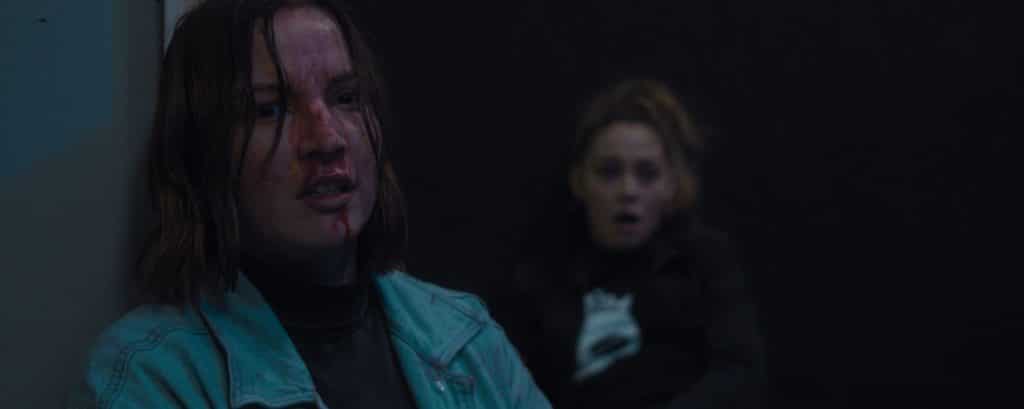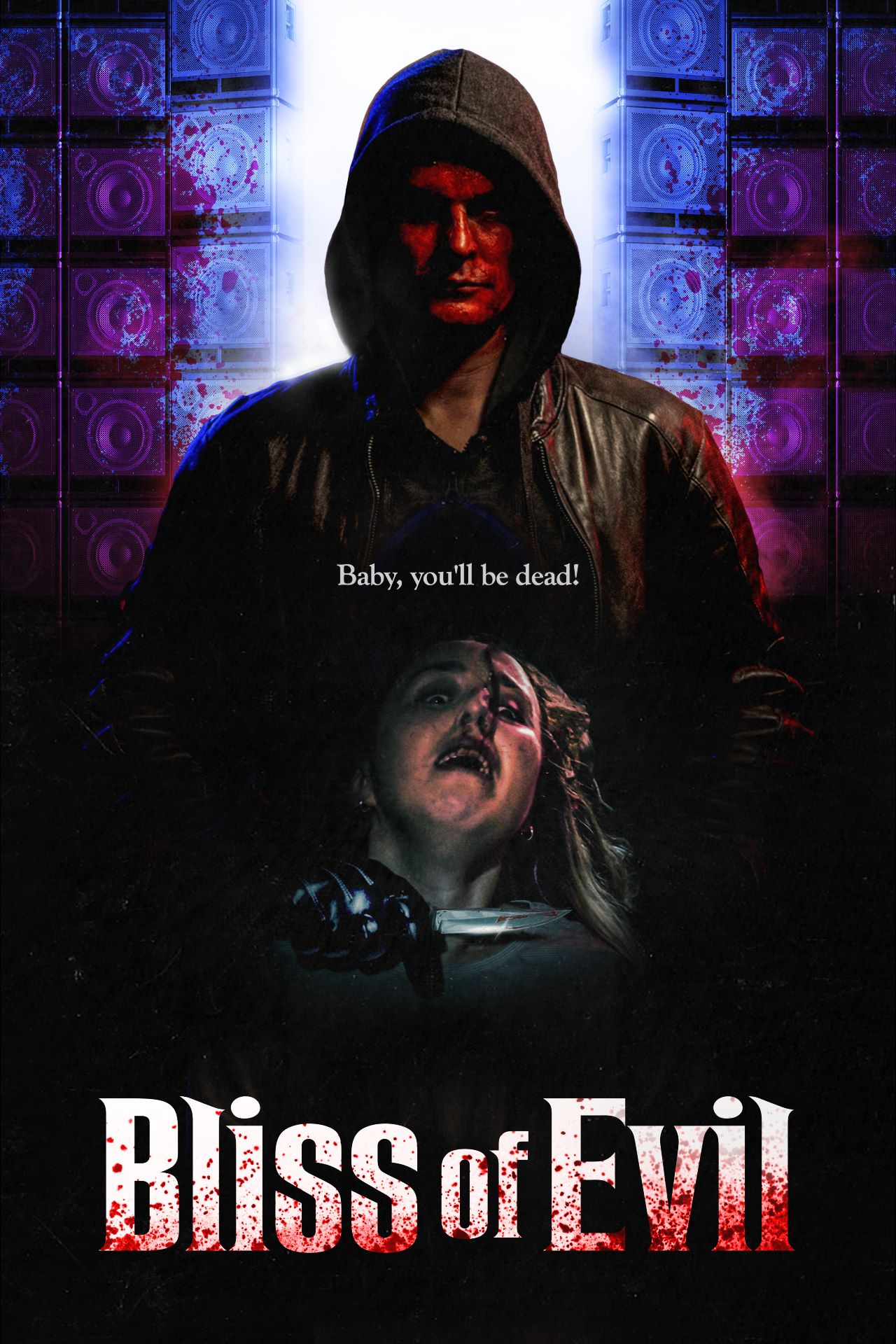
With on-screen text which tells us that events in the film genuinely took place in Brisbane, Australia in 1997, Bliss of Evil avowedly sets itself up as something other than the more typical supernatural set-up we often get when music – particularly rock music – is concerned. And indeed, the opening scene is very grisly, with a tools-on-table murder of a terrified young woman and the slightly less grisly death of her male companion. So the film has set out its stall: it is bloody, and continues to be bloody, even if it must have been somewhat constrained in how much blood it could openly throw around.
We move elsewhere in the aftermath of the opening sequence; however, the trauma which sees us in is extended to the next character which we meet. Isla (Sharnee Tones) is a young woman prone to nightmares and broken sleep. They’re the kind of nightmares which overshadow your day, too, but she is determined not to hide away at home as a result of them. With her friend Jamie (Michaela Da Costa) unexpectedly in tow, she heads off to her work as a sound engineer, assisting a band called Prom Night at her uncle’s slightly beaten-up, but serviceable little recording studio.
The nature of Isla’s trauma isn’t immediately clear, but she does bear a few markers of some traumatic event; her arm is in plaster, for example. But clearly, a lot of her issues are psychological. As allegiances and love interests are established (and as the music itself gets laid down) it seems that it’s the track ‘Bliss of Evil’ which seems particularly triggering for her. As we begin to wonder why and to piece events together, things get worse as they move beyond flashbacks and possibilities when one of the party is themselves killed. Recriminations fly and paranoia rises as the remaining people in the group look for the culprit. But whoever’s responsible, it seems, has locked them all in.
This is an unashamed slasher film which has a keen sense of where it fits in to a long-standing horror tradition. The film’s script openly references horror throughout, right down to the band’s name, and it also takes some rather grim delight in running through all of the features of the recording studio which make it a good place to pick off a few terrified young people: all those doors, the fact that it’s sound-proofed, fortified – it shows us a few possible weapons, too, which we may or may not see again. In terms of what kind of slasher we get here, it’s very much in the darker, more ominous vein; it may reference other films, but this doesn’t mean it’s simply a meta-style movie which riffs on old ideas in a knowing or laughing way.
Instead, and right down to the music which accompanies the film, it hangs onto a sense of something profoundly nasty taking place. If it wanted to be more openly grisly (the calling card of the opening scene suggests this) then it deals with constraints by assuring us of the visceral, nasty violence taking place, even if we can’t see all of it. But then, there is a large psychological component here, ably acted by Tones as she charts old experiences bubbling to the surface again. In fact, give or take a few echo-y sound issues, this is a well-acted film with good visuals, good camerawork and some more creative sequences too; director Josh Morris (and co-writer alongside Corrie Hinschen) have done as much as they can with what’s available to them, not being restricted to one, simplistic, linear format. Fans of the genre will no doubt be impressed by the ambition and enthusiasm on offer here. It’s a testament to indie ingenuity, and deserves credit for that.
Bliss of Evil (2022) will feature at the Soho Horror Film Festival on Saturday 1st July.
